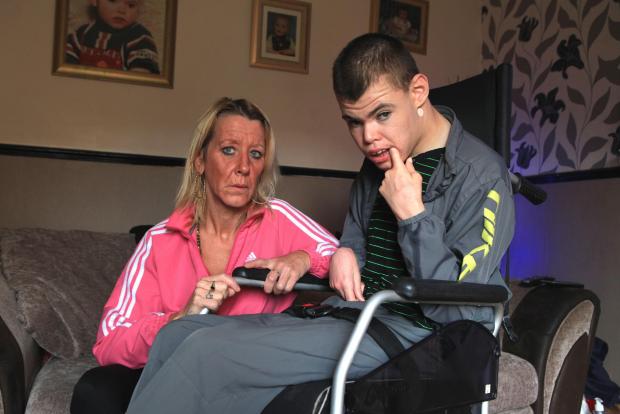Public ‘unaware’ of care-home costs – and of probability they will need care themselves
Nearly half of all respondents to a survey said they did not know the average weekly cost of a place in a residential care home. Of those that did answer, the mean figure suggested was £396.58 – around £140 below the average fee of £531.The survey also found that many people underestimate the probability of needing care themselves in the future. Out of 2,271 people asked , more than half believed the probability was lower than 40 per cent. Yet research suggests that 65-year-old men have a 68 per cent chance of needing care before they die, while women have an 85 per cent chance. “Voters may struggle to ensure that the quality of services provided to vulnerable members of their community is appropriate … if they do not know what their local authority pays for care,” the report warns.
Severely disabled man told he must take medical to prove he is not fit for work
Ryan has needed round the clock care since he was four months old
4:20am Saturday 14th September 2013 in
News By Vicki Henderson, Darlington reporter
 Ryan Norman, 20, with his mother, Ceneta
Ryan Norman, 20, with his mother, CenetaUNABLE to walk, talk or feed himself, Ryan Norman has needed round-the-clock care since he was four months old.
Now, at the age of 20, Government bureaucrats say he must have a medical to see if he is fit for work before he can claim the benefits his mother relies on to care for him.
Ryan’s mother, Ceneta, his sole carer, claims she is in serious financial difficulties after Ryan’s child benefit and tax credits automatically stopped on his 20th birthday on September 1 – with a wait of several weeks before he is assessed for adult benefits.
Ms Norman, from Darlington, described her son as a baby trapped in an adult’s body and said she cannot understand why he must prove his disabilities for the adult benefits system when his condition is already well documented.

















